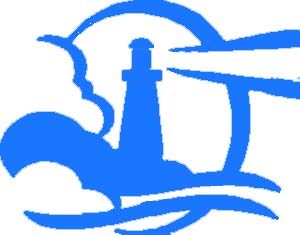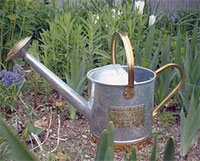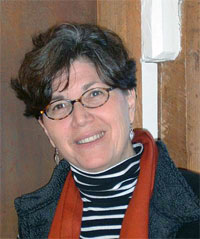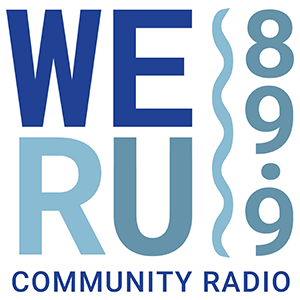WERU’s Pat Fowler Named National Federation of Community Broadcasters’ Volunteer of the Year for 2017!
Pat Fowler, a long-time volunteer at WERU, has been selected as the “2017 Volunteer of the Year” by the National Federation of Community Broadcasters, by virtue of her almost three decades of volunteer service.
“What an amazing reward—a national award for something which I’ve thoroughly enjoyed. It’s just as astounding to be singled out within the WERU community where so many people give so much time, work and thoughtful caring.” – Pat Fowler
 WERU’s Doc Morrill Inducted into the Maine Country Music Hall of Fame
WERU’s Doc Morrill Inducted into the Maine Country Music Hall of Fame
William “Doc” Morrill, the longtime host of Down Home Country on WERU, Thursday mornings at 9:00-10:00 and rebroadcast on Sunday mornings at 5:00-6:00, will be inducted into the Maine Country Music Hall of Fame on June 11, 2017. Congratulations Doc!
Watch Doc Morrill’s interview on WVII ABC 7 TV on April 20, 2017.
Spirit of Winter in Mid-Coast Maine
This short film by filmaker Chris Lehmann, which features the voice of WERU, won the “Honorable Mention” award in the Maine Media Workshops Fortieth Anniversary competition and will be given to both the Rockport and Camden Chambers of Commerce as an archival record for future generations to watch. Watch the film here.
Mention in Down East Magazine, August 2005
(The following appeared in the August 2005 issue of Down East Magazine as part of their article “The Maine Hippie Trail”. It is reprinted here with their permission.)
WERU-FM:
Maine’s ultimate community radio station had its first home in a chicken barn owned by Noel Paul Stookey (of Peter, Paul, and Mary), broadcasting from the top of Blue Hill. The station moved to East Orland in 1997 but still transmits its subversive signals — Democracy Now! — out into the ether, waging a daily battle of ideas with the Clear Channel chain. www.weru.org
Mention in Financial Times of London, September 2005
(Reprinted with permission from the Financial Times of London for September 17th / September 18th, 2005 Weekend “The Voices of America” by Jurek Martin.
Letter to America
The contrasting styles of two radio stations reflect
the extremes of left and right in the U. S.
There is a Blue Hill far away in Maine and it is in many respects as much a state of mind as a place. But it has a voice, its radio station, and if not unique, it is at least different.
More than 700 miles to the south, the nation’s capital has many voices and many radio stations. But the worlds inhabited by WERU-FM in Blue Hill and WMAL-AM in Washington, D. C., are as chalk and cheese.
If there is a dialogue of the deaf in America, then both represent the extremes. They talk to their converted, but do not listen or reach out much to the vast middle.
Driving down from Maine, constantly fiddling with the radio dial to catch the war of words in the aftermath of Hurricane Katrina, suggests this is too typical of the sad state of the national radio mind. So this letter, held over because of Katrina, came to seem as valid as when written.
Blue Hill is to the northern Atlantic seaboard what Berkeley, California, is to the Pacific Coast and Boulder, Colorado, to the Rockies, a remaining repository of unvarnished 1960s liberalism. The place is more complex than the stereotype, but you would not know it from listening to its non-commercial “community” station.
Its programming melange of music and commentary is almost sweetly right on. Hours are devoted to “indigenous, native, world and ambient” music, featuring lots of Peruvian pipes, Indian chants, whale sounds and campesino laments. Obscure blues, jazz and rockabilly get much airtime by amateur DJs apparently unfamiliar with their broadcasting equipment.
Its words come from Free Speech Radio, the Texas-twang commentaries of Jim Hightower, the progressive icon who never met a Bush he liked, and harsh-voiced Amy Goodman’s Democracy Now programme, which preaches democratic values this president would not recognise.
I also caught a long interview with the only transgendered MP in the New Zealand parliament and heard earnest segments on bird migration, the health dangers of industrial toxins and assorted new age philosophies. Programme sponsors include a local acupuncturist and a manufacturer of eco-friendly t-shirts.
For two weeks each summer, WERU is addictive. For too much of the rest of the year I find myself tuning in to WMAL with the fascination of a cobra confronted by a mongoose, notwithstanding commercial messages from car dealers and laser eye surgeons.
I do so because it features Rush Limbaugh, the most influential of rightwing radio voices. His views are repellent and his vanity noxious but he is no fool. Thirty minutes of Limbaugh reveal more of the administration’s spin du jour than hours listening to official mouthpieces (bottom line; it is all Hillary Clinton’s fault).
He has also spawned an army of imitators, most aimed at local markets. WMAL, a self-branded rightwing station, fills up the hours with several, one of whom recently took to indicting Islam (that is, the whole religion) as nothing more than a “terrorist organisation.”
Muslim groups protested, he would not back down and the station, under duress presumably from its owner, Disney, “suspended” him from the air. He still refused to recant so last month he was fired, his 15 minutes of fame expired.
However, his morning slot was temporarily filled by another motormouth, based 3,000 miles away in Sacramento, California. He picked up the news that the town council in Herndon, Virginia, an expanding Washington suburb, proposed building a simple facility (shelter and toilets) for the “day labourers” who congregated in a convenience store parking lot, hoping to pick up construction work.
Many day labourers are illegal immigrants and therefore targets for vigilantism. Pick ’em up and throw ’em out was the word from Sacramento, and, encouraging mob rule, jam the town council’s phone lines with protests and turn up en masse at its next meeting, where a local WMAL host will be present to show solidarity. But Herndon, so far, has stood its ground.
What I heard on WMAL, before finding the gentler embrace of WERU, struck me as hate speech, or very close to it. Societies that victimize the most vulnerable, regardless of their legal status, are on a slippery slope to something truly nasty — as history shows.
There is, however, a shaft of light in all this gloom. Talk radio ratings are dropping like stones all over the country, with even Limbaugh, once boasting 20 million daily listeners, losing upwards of 40 percent of his core audience of 25 – 54 year-olds in big cities. WMAL itself is down 30 percent.
These ratings to fall after an election year — and Katrina may have lifted them again, temporarily. But maybe America is finally tiring of this constant demonisation of any different point of view as “far left” or “far right”. (Herndon’s mayor was an “ayatollah.”). And commercial sponsors often call for change if slumping ratings persist.
It has happened before. Father Joseph Coughlin and Walter Wincell, potent early exponents of radio hate, are now but minor historical footnotes. For now, I’d take WERU over WMAL any day of the week, because it neither threatens nor hectors. It is not, however, exactly in Washington listening range.
WERU Receives “Rising Tide” Award from the Maine People’s Alliance
 At the MPA’s November 4th “Rising Tide Dinner” Community Radio WERU was honored to receive one of several “Rising Tide Awards.”
At the MPA’s November 4th “Rising Tide Dinner” Community Radio WERU was honored to receive one of several “Rising Tide Awards.”
 The other honorees: John Dieffenbacker-Krall (former MPA executive director, now executive director of the Maine Indian Tribal-State Commission), Milt Hillery (long-time MPA activist/organizer), Marilyn Canavan (representative in the Maine State Legislature), Rob Shetterly (“Americans Who Tell the Truth” artist) and Candace Gingrich (national LGBT activist and featured speaker).
The other honorees: John Dieffenbacker-Krall (former MPA executive director, now executive director of the Maine Indian Tribal-State Commission), Milt Hillery (long-time MPA activist/organizer), Marilyn Canavan (representative in the Maine State Legislature), Rob Shetterly (“Americans Who Tell the Truth” artist) and Candace Gingrich (national LGBT activist and featured speaker).
 All were praised for their work to organize and support citizen action around economic, environmental, political and social justice issues. Governor Baldacci and Congressman Michaud attended and spoke at the event.
All were praised for their work to organize and support citizen action around economic, environmental, political and social justice issues. Governor Baldacci and Congressman Michaud attended and spoke at the event.
WERU is extremely grateful to the MPA for the honor of a “Rising Tide Award.” Click here for more information about The Maine People’s Alliance: www.mainepeoplesalliance.org.
(In 2004 WERU received a “Social Landscape Artistry Award” from Maine Initiatives: A Fund for Change, online at www.maineinitiatives.org.)
WERU Receives “Social Landscape Artist Award” (May 21, 2004)
 Community Radio WERU-FM of Maine was recently presented a “Social Landscape Artist Award” by Maine Initiatives, a prominent state-wide fund for change that cultivates social, economic, and environmental justice through grants and other support to grassroots organizations in Maine communities. The award is one of three “Watering Can Awards” (“Water to the roots… and plenty of it!”) presented annually by Maine Initiatives (www.maineinitiatives.org). Over three-hundred people were in attendance for at the 2004 “Celebration of Social Change” Banquet held in Woolwich, Maine. (including the local chapter of the Radical Cheerleaders, and former Maine Congressman and current Executive Director of the Win Without War Coalition, Tom Andrews). Accepting the Watering Can on behalf of WERU were Lynn Soucy, WERU Board Member and Treasurer, and Matt Murphy, General Manager.
Community Radio WERU-FM of Maine was recently presented a “Social Landscape Artist Award” by Maine Initiatives, a prominent state-wide fund for change that cultivates social, economic, and environmental justice through grants and other support to grassroots organizations in Maine communities. The award is one of three “Watering Can Awards” (“Water to the roots… and plenty of it!”) presented annually by Maine Initiatives (www.maineinitiatives.org). Over three-hundred people were in attendance for at the 2004 “Celebration of Social Change” Banquet held in Woolwich, Maine. (including the local chapter of the Radical Cheerleaders, and former Maine Congressman and current Executive Director of the Win Without War Coalition, Tom Andrews). Accepting the Watering Can on behalf of WERU were Lynn Soucy, WERU Board Member and Treasurer, and Matt Murphy, General Manager.
Maine Initiatives Statement on WERU:
Hungry for media that fosters understanding and diversity? Feast your ears on WERU. Since hitting the airwaves in 1988, WERU has trained hundreds in live radio broadcasting and audio production. Started, run, and funded by volunteers and listeners, it’s a “voice of many voices” for listeners underserved by commercial broadcasters. For midcoast, downeast, and central Maine, WERU gives airwave access to individuals, musicians, nonprofits, and more – a radio “neighborhood” building community through music, news, and ideas.
Award Presentation Address, Delivered by Naomi Schalit, Executive Director of Maine Rivers:
 There are many ways to do radio. There’s shock jock radio, there’s top forty radio, there’s retro “golden oldies” radio (of course, what’s retro on the radio these days is stuff I still consider new!), there’s talk radio, there’s public radio….and, ladies and gentlemen, there is community radio. We are here tonight to honor community radio, which in my book is locally grown, organic, whole wheat, whole grain, unbleached, stone-ground and minimally processed. It’s radio that’s good for you, because it’s real and honest and unpretentious and direct and authentic, and you know where it’s coming from – us. Never was there a set of radio call letters so right on: W-E-R-U. Get it? WE R U. They are us.
There are many ways to do radio. There’s shock jock radio, there’s top forty radio, there’s retro “golden oldies” radio (of course, what’s retro on the radio these days is stuff I still consider new!), there’s talk radio, there’s public radio….and, ladies and gentlemen, there is community radio. We are here tonight to honor community radio, which in my book is locally grown, organic, whole wheat, whole grain, unbleached, stone-ground and minimally processed. It’s radio that’s good for you, because it’s real and honest and unpretentious and direct and authentic, and you know where it’s coming from – us. Never was there a set of radio call letters so right on: W-E-R-U. Get it? WE R U. They are us.
And who are we? WERU is Music: World, Celtic, women’s, African, New Age and Indigenous, reggae, bluegrass, hip hop, 80s, punk rock, techno, Latin, zydeco, delta blues, bourgeois blues, jazz, polka, and thank you so much, WERU, the Saturday and Sunday morning coffeehouse, which is where you can hear the best folk music ever played on the radio except for a show that comes from Princeton New Jersey called “Music You Can’t Hear on the Radio.” WERU is the Barefoot Blues Hour, the Goodfolk Meeting House, New Potatoes, Women’s Windows, Rhythm of Life, Old Woodstock, Bronzewound, Highway 61 (for those of you who don’t get the reference, that’s a Dylan show), and Insomniac’s mix. Have I missed any kind of music in this list?
And that’s just the music. But WERU is also “Voices You Can’t Hear on the Radio” — it’s the Voice of Many Voices, as it so rightly calls itself, where you can hear National Native News, which helps radio listeners understand the interconnectedness between Native people and their non-Native neighbors. They’ve got Free Speech Radio News, the only daily half-hour progressive radio newscast in the U.S, owned and managed by news reporters; and, of course, there’s Democracy Now, whose incisive and powerful host, Amy Goodman, describes herself as an independent journalist searching for the unfiltered truth.
Those are the national programs, which WERU distinguishes itself by featuring. But it further distinguishes itself by supporting and promoting the work and voices of the many local people who ordinarily wouldn’t stand a chance of ever getting on the radio. There’s the legendary Awanadjo Almanac, where local minister Rob McCall waxes eloquent about all things natural, and conveys a profound sense of place as he does so; Boat Talk, a live & local call-in on all things boats; Doing Business, a live & local call-in on small & home-based business; Bird Talk, a weekly bird report from Birdman Bob; Peace Time, a weekly short feature on an area peace & justice group or activity; and Healthy Options, a local program on resources and options for whole health.
That’s only a smidgen of the diversity on WERU. How do they get that diversity? Here’s where the real democracy of community radio resides: They train people, regular people, to do radio. They open their doors, let people in, and show them how to run a board, use a mike, make the CD player work, and produce a program. They have standards, and they teach them – democracy in action on radio doesn’t have to mean dead air, or screaming, or fumbling, or embarrassing mistakes. It does mean voices we’re not used to hearing on the air – your neighbor’s voices, the boat builder’s voice, the shopkeepers’ voice, your acupuncturist’s voice, your children’s voices, YOUR voices – telling us about your lives, what you care about, what you know, what you don’t know, what makes you happy and sad and angry and joyful, and how you’d like to heal the world. This radio station has two hundred active volunteers – how many of your non-profits can lay claim to such a community?
When I wanted to buy a house, the real estate agent asked me what my requirements were. Three bedrooms, two baths, and the ability to get WERU on my radio, I told her. Totally non-negotiable. This past Valentine’s Day, I turned on WERU in my three-bedroom, two bath house. And lo and behold, they were playing some of the most syrupy, chocolaty, sentimental love songs you ever did hear. Now I am not a cynic, nor am I curmudgeonly. But I am single, and most of the time that’s fine with me, but a solitary Saturday morning on Valentine’s day can be hard on even the most hardy spirit….and those damned love songs weren’t making it any easier. So I did what any self-respecting listener of WERU, Community Radio would have done; I picked up the phone and called the show’s host in the control room – 469-0500 for those of you who don’t know it — and told him that not everyone was paired off romantically this Valentine’s Day and since WERU was supposed to be the Voice of Many Voices, couldn’t they play something else, pleeeeaze, for us lonely single folk on Valentine’s Day, like maybe some labor songs? Couldn’t they play Joe Hill?
Well, within minutes, the kind host had switched gears and was playing civil rights movement anthems. God Bless you, WERU, for your openness, your bigheartedness, your democratic spirit, your quirkiness and seriousness and deep, deep morality. Our world here in Maine is richer because we have you in our midst, and we are all proud to be a part of you.
Acceptance Address by Matt Murphy of WERU:
On behalf of the Board, Staff, Volunteers and Members of Community Radio WERU, I offer our most sincere and heartfelt thanks to Maine Initiatives. We are thrilled and honored to receive a Watering Can Award as a Social Landscape Artist, and humbled to be in such good company with the other recipients, past and present.
Social change and justice are at the heart of WERU, because Community Radio is truly a “village green of the airwaves” where music, culture, ideas and discourse can be shared in a noncommercial, community-centered environment designed specifically to serve the needs of those not fully served by other broadcasters and the corporate media. At WERU we believe that access to information and expression are fundamental human rights that must be nurtured, exercised and defended in order for positive social change to occur.
For over sixteen years we have endeavored to be a “voice of many voices” by offering eclectic programming, local access and open governance to the literally thousands upon thousands of voices, on the air, behind the scenes and out in the community, that have collectively worked to make it possible for WERU to survive and thrive in a very uncertain world. This award belongs to all those voices; to the individuals, families and local businesses and organizations that have helped make this station what it is today, a vital community resource.
Ultimately, Community Radio is about storytelling: stories that are musical or spoken; stories that help us to understand ourselves, our neighbors, our communities and our world; stories that inspire thought, dialogue and action towards positive and compassionate social change. Community Radio WERU is deeply honored to now have a Maine Initiatives Watering Can Award as part of our story. Thank you very much.
